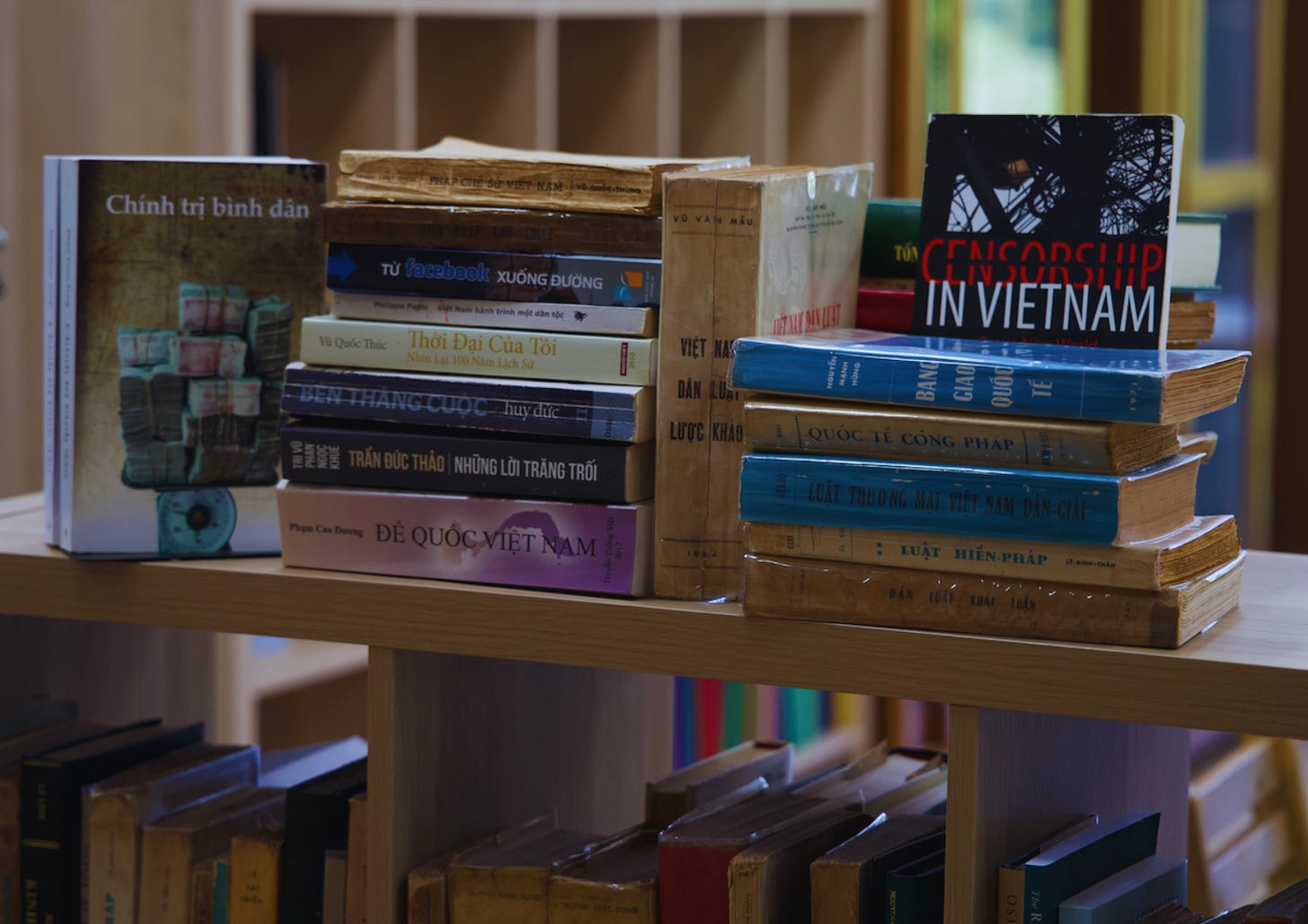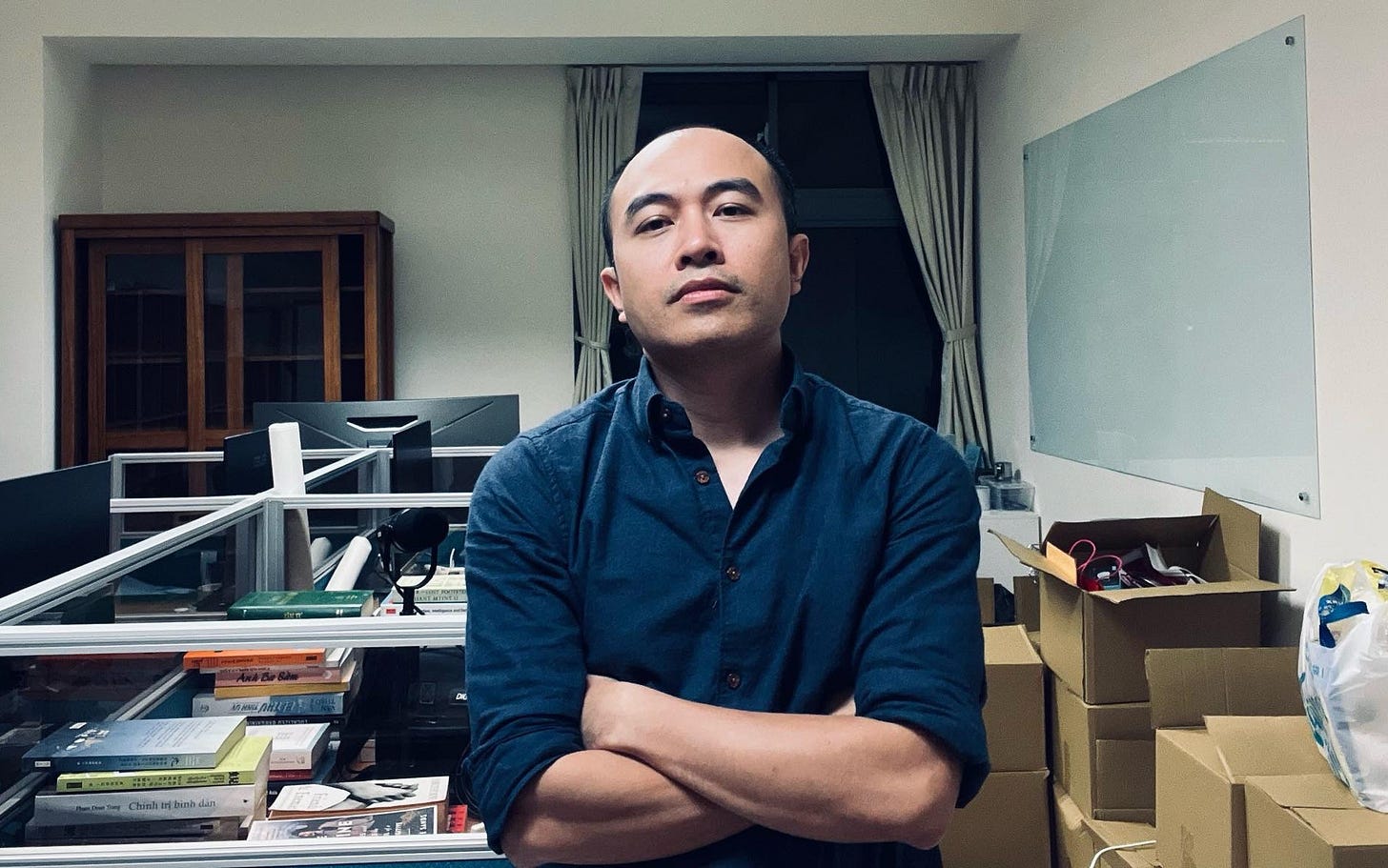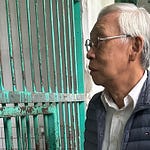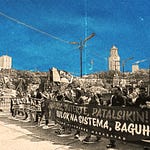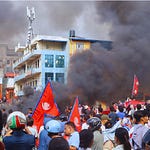There’s something quite poetic about Vietnamese journalist-in-exile Trịnh Hữu Long setting up shop at National Chengchi University on the outskirts of Taipei.
“This university used to be a party training centre during the marital law era in Taiwan, so government officials were trained here,” says the pro-democracy activist and magazine editor. “And now they’re hosting us […] This has gone from being a training centre for an authoritarian regime, to hosting a pro-democracy organisation from Vietnam.”
Operating out of a relatively small space, Long’s office doubles as a newsroom and library — the latter housing dozens of books that have been banned in Vietnam.
Long’s journey to Taiwan began after he became disillusioned with the state of the Vietnamese media and government censorship while attempting to set up his own publication.
A graduate of Hanoi Law University, Long established himself as the co-founder and editor of Vietnamese-language magazine Luật Khoa, which covers human rights and legal issues in the country, and The Vietnamese Magazine, an English-language publication focusing on politics. Fearing government reprisals, Long went into exile in 2013, first moving to Manila in the Philippines, then relocating to Taipei four years later.
“Moving to Taiwan was one of the best decisions I have ever made,” he says. “Taiwan offers the best lessons for any democracy movement, and […] for people in authoritarian countries who want to democratise their countries. And I think Taiwan is, in my point of view, the best model of democratisation for Vietnam.”
‘People have changed fundamentally’
It’s a difficult road ahead for Vietnam’s pro-democracy movement, with conservative factions of the ruling Communist Party initiating increasingly harsh clampdowns on free speech and expression over the last decade. “Most prominent movement leaders are in jail now,” says Long.
One of those imprisoned is Phạm Đoan Trang, Long’s colleague and a co-founder of Luật Khoa. Trang was arrested in 2020, and the following year sentenced to nine years for ‘conducting propaganda against the State of the Socialist Republic of Vietnam’. During her time in prison, her health has reportedly been in serious decline. “We are trying to advocate for her freedom,” Long adds. “But for now the Vietnamese government doesn’t want her to be free yet, so she’s stuck there.”
In the past few years, Long has also witnessed how the government has grown more sophisticated in controlling information and shaping the online narrative. But he points to a population that is becoming more aware of its rights and developing a greater capacity to mobilise.
“20 years ago, the ‘human rights’ term was a taboo; nowadays, people talk about human rights. 10 years ago, going for a protest was a taboo — no one even thought about it; nowadays, no one even questions whether we have the right to protest,” says Long.
“I have witnessed and had conversations with ordinary citizens that make me think that people have changed — fundamentally — in the way they see the government and the way they see the future of Vietnam.”
In this episode
For this episode of the Currents podcast, I speak with Long about press freedom and freedom of expression in Vietnam, as well as his work to preserve literature and writing considered off-limits by the Vietnamese government.
Our conversation had a personal resonance. About 10 years ago, I lived and worked in Ho Chi Minh City as a correspondent for Thomson Reuters, so it was incredibly interesting to hear about the changes that have taken place since I was there.
To explore more of Long’s work, you can access The Vietnamese Magazine and Luật Khoa, and for more context on Trang’s imprisonment, a recent statement from the Committee to Protect Journalists can be found here.




